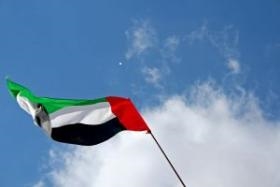Emerging status is just the start - opinion

In recent years we have seen the Middle East and North Africa (MENA)
region experience a number of historic challenges; from the impact of
the crisis when foreign direct investment vanished overnight to the
complexities of the Arab Spring and, most recently, oil prices falling to their
lowest levels in over a decade.
It is
testament to the region’s resilience that despite these many setbacks, and
continued uncertainty, MENA economies continue to forge ahead. Albeit at a
slightly diminished pace, given the current fiscal shortfall, GCC countries in
particular are maintaining their commitment to the core infrastructure projects
required to sustain a growing demographic
with over 60% of the population under the age of 25.
Given the rapid rate of development underway it is easy to forget that
these are still frontier-to-emerging markets, and while it is true to say the
economies of the MENA region continue to progress at differing speeds,
one consistent theme emerges – they have made tremendous strides in a very
short period of time.
The most prominent centres have moved from theoretical aspirations, to
practical application of increasingly international standards, with the UAE and
Qatar acceding to MSCI and FTSE Emerging Market status in 2015 and now Saudi
Arabia expected to reclassify by 2018.
Even the smaller centres have kept pace, with Kuwait relaunching an
entirely new Bourse this year, Oman updating its corporate governance
legislation and Bahrain adjusting its capabilities as a financial hub.
Markets across the Levant and North Africa continue to maintain strong
connectivity with international counterparts and exceptional examples such as
the Palestine Exchange stand out as a model for dynamic investor
engagement.
In several respects there is still a long way to go for these
markets to achieve the momentum needed to secure upper emerging classification
and gain access to the broader capital flows they aspire to, but recent efforts
prove intent and determination to secure buy-in.
Of particular note are some of the more innovative solutions being
deployed to ensure regional markets become more attractive
to international professional investor networks. From 2016 new regulations in
the UAE made it mandatory for listed companies to establish an investor relations
function and develop proactive shareholder communications.
Qatar is exploring similar solutions and remains one of the most
active markets to drive best practice. Most recently Saudi Arabia’s
market authorities have launched a combination of revised corporate governance
standards and a qualified foreign investor scheme that provides professional
investors with direct access to the Tadawul. So while still relatively
untested, these are important steps to establishing the market infrastructure
requirements expected by both retail and institutional investors
Now is not the time for complacency however. The international
indices demand high standards of transparency and engagement, especially given
the massive increase in regulations and scrutiny among developed
markets. Moving from frontier to emerging status requires real commitment, and
this is only the start. In order to retain these classifications, more work is
needed to develop a predictable culture of open accountability and access,
building trust over time. This is especially true where aspirations might lead
to bids for developed market status.
One of the tools used to deliver this is the increasingly strategic
management function of Investor Relations (IR). Still evolving and
adapting, IR best practice is built on the simple ‘universal standards’ of access,
transparency and proactive disclosure. These principles are the foundation for
successful C-suite engagement with investors, as well as streamlining the
efforts of other key functions within listed firms.
By way of support,
research has clearly shown that while a number of influential investors who ventured into
frontier and emerging regions, investing with enthusiasm following
successful first meetings with C-suite and other executives, they were often
unable to remain due to lack of continuity.
It is key that
listed firms understand that for an institutional investor, initial
meetings with executive management are just the beginning of a long-term
process in building trust and conviction. If senior representatives fail to
engage in follow-up due diligence meetings, professional long-term
investors will fall short of the key evidence needed to retain their
positions.
Last but not least,
we are seeing increasing demand around the world’s markets for the authorities
to offer greater stewardship, providing guidance and counsel. Among emerging
markets especially, consensus suggests that even where infrastructure and
regulations have significantly improved, oversight and effective enforcement
still seem to be a challenge.
So while the mechanics are in place, regulators and exchanges
alike should remain aware that if they wish to attract and retain the kind of
long-term, professional fund managers who will bring greater stability and
positive volatility, they will need to deliver greater compliance to the
international standards the investors themselves are duty-bound to comply
with.
Found this useful?
Take a complimentary trial of the FOW Marketing Intelligence Platform – the comprehensive source of news and analysis across the buy- and sell- side.
Gain access to:
- A single source of in-depth news, insight and analysis across Asset Management, Securities Finance, Custody, Fund Services and Derivatives
- Our interactive database, optimized to enable you to summarise data and build graphs outlining market activity
- Exclusive whitepapers, supplements and industry analysis curated and published by Futures & Options World
- Breaking news, daily and weekly alerts on the markets most relevant to you



